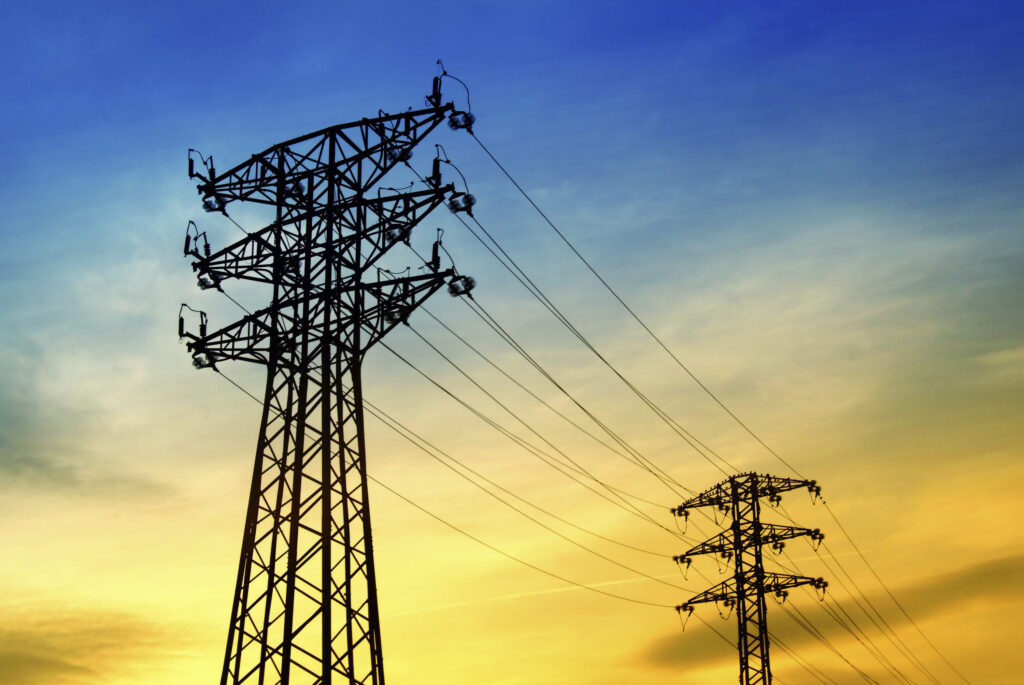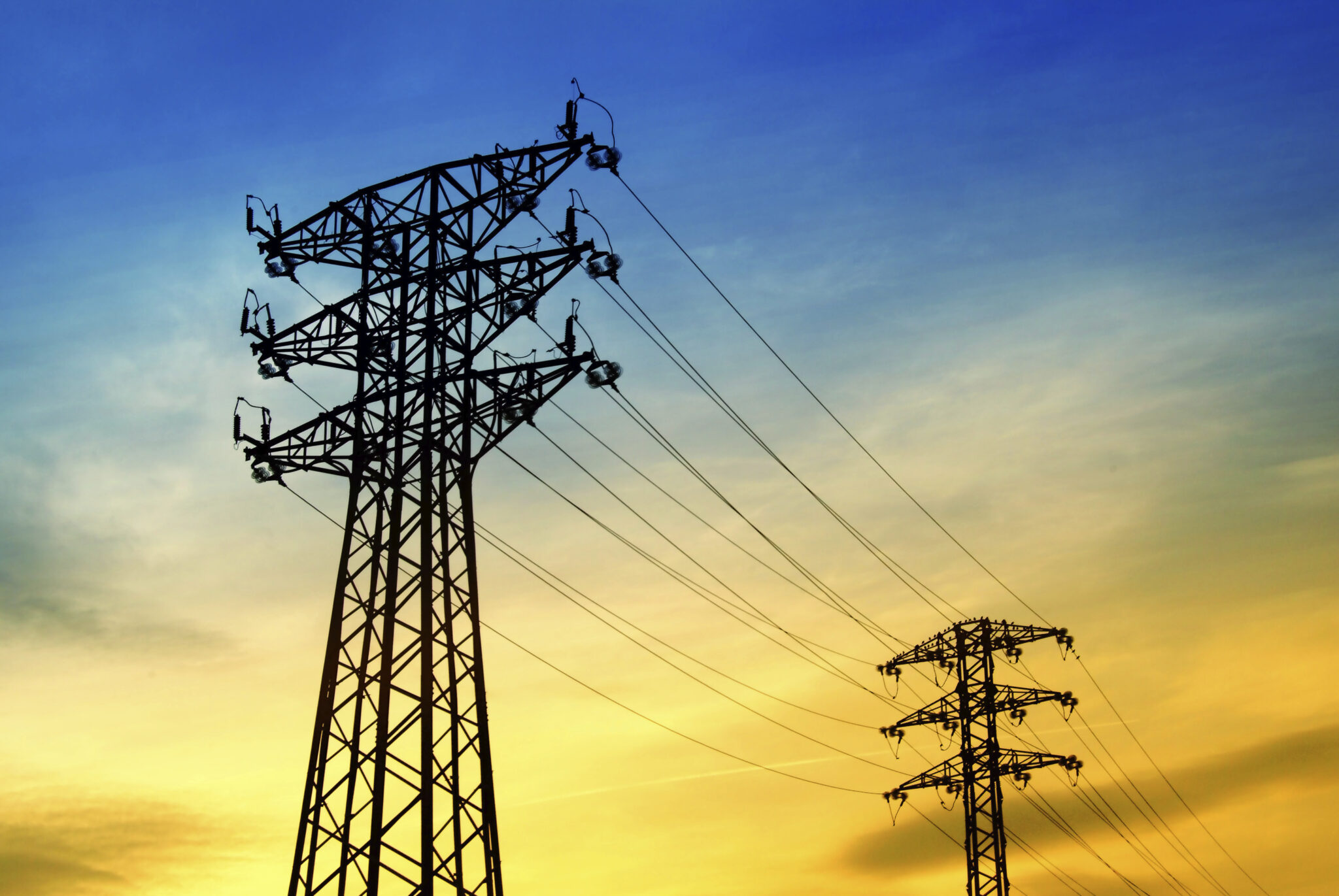Category: State
Tracking Federal Spending in the Southeast and U.S. Territories
Grace Parker

The Infrastructure Investment and Jobs Act, also known as the Bipartisan Infrastructure Law (BIL), passed in November 2021. The law allocates $550 billion in new federal spending over ten years for infrastructure projects, including roads, public transit, broadband, and electric grid upgrades. With so much funding on the table, SEEA is working to ensure funds are distributed equitably across the U.S. and to underserved communities. To this end, SEEA tracked and analyzed where BIL funding has been committed, what it’s being used for, and what type of funding it is. We have published our findings in two new whitepapers, “Investing in the Southeast” and “Investing in the Territories,” with accompanying data dashboards for states and territories.
We found that the Southeast has not received a share of funding proportionate to its population. Nationally, the BIL had committed, on average, $537 per person as of January 22, 2024, compared to just $443 per person in the Southeast. For BIL grant funding, south-central (Texas and Oklahoma) and southeastern states received just $38 and $43 per person, respectively, while northeastern states received $124 per person on average. Southeastern states received funding primarily through formula funds, which are noncompetitive allocations to states and territories based on distribution formulas.
In the U.S. territories, funding for Puerto Rico contrasts starkly with other territories. Given that Puerto Rico has nearly 3.2 million people – twenty times more than Guam, the next most populous territory – it’s not surprising that Puerto Rico receives over nine times more funding than the other territories at over $650 million. However, Puerto Rico still receives a low amount of funding per capita at just $202. Although committed funding in the other territories is less than $100 million each, funding per capita matches or outpaces that of Puerto Rico and many U.S. states, with the Northern Mariana Islands and American Samoa receiving $1,553 and $1,044 per person, respectively. Unlike the Southeast, the U.S. territories receive most of their funding through competitive grants. The greater dependence on grants is notable, given the capacity required to develop competitive grant applications.
While the BIL updates the definition of infrastructure to include critical energy and environmental investments to mitigate climate change, BIL investments have so far been focused on traditional infrastructure like roads and bridges. Ground transportation is the largest category of funding in the BIL, and nearly 75% of BIL funding in the Southeast is for ground transportation. Other key categories include broadband expansion and pollution control. Puerto Rico also received the largest share of funds for ground transportation followed by pollution control and broadband, whereas other territories received most of their funding for pollution control with ground transportation comprising only about a quarter of funding. Energy conservation funding, which is dedicated primarily to the Weatherization Assistance Program (WAP) and State Energy Program (SEP), comprises about 3.1% of committed BIL funding in the Southeast and about 2.4% in the territories.
This analysis is the first installment in an annual review of federal funding, which will help SEEA identify gaps in federal support for the Southeast states and U.S. Island Territories. To see how BIL funding in your state or territory stacks up, check out our associated whitepapers and data dashboards.
2023 Election Highlights
Lily Smith

With a national election occurring next year, there is increased media attention on local candidates’ economic, social and foreign policy platforms. This fall, the Southeast held four key elections in Kentucky, Louisiana, Mississippi and Virginia, which highlighted the tension between federally funded clean energy initiatives and traditional gas, oil and coal industries. A recurrent theme throughout the 2023 gubernatorial and public service commission campaigns was emphasis on an “all-of-the-above” energy generation and supply strategy. The stance was supported by the winning gubernatorial candidates from Southeast states with large coal, oil and natural gas industries.
Kentucky
Incumbent Democratic Governor Andy Beshear sought and won reelection against opponent Republican Attorney General Daniel Cameron on November 7. Lieutenant Governor Jacqueline Coleman was also reelected. One of the most popular governors in the United States, Beshear favors an “all-of-the-above” strategy for generating and supplying energy to Kentucky residents. In a state with a historically prominent coal industry, Governor Beshear’s policy supports integrating a range of renewables and more reliance on natural gas while slowing down the transition from coal. The hesitancy to move away from coal was apparent in a bill passed in the state Senate and House in March 2023, which requires utilities to prove to the Kentucky Public Service Commission that the retirement of a coal plant would not negatively impact customer rates or the grid’s reliability. Despite public comments opposing the bill from Kentucky Utilities, Louisville Gas and Electric, and Duke Energy Kentucky, the bill became law without a signature or veto from the governor.
Energy and climate highlights of Beshear’s career include KYE3: Designs for a Resilient Economy, published in 2021, which ties together the economy, energy and the environment as priorities in ensuring a resilient economy for the state. Additionally, under Beshear’s leadership, the state has seen significant clean manufacturing investments, including a $5.8 billion deal in 2021 with Ford Motor Co. and SK Innovation to create 5,000 jobs at two new electric battery plants, a $2 billion deal in 2022 with Envision AESC to create 2,000 jobs at a battery plant, and further announcements from Rivian and Hitachi.
In 2023, Governor Beshear was one of four governors who chose not to accept funding from the EPA-administered and IRA-funded Climate Pollution Reduction Grants, which gives money to the states to develop plans to reduce greenhouse gas emissions. Beshear’s perspective is that major cities, which are also eligible, are better equipped to apply directly for these funds.
Louisiana
With Democratic Governor John Bel Edwards’ term set to expire in 2024, current Republican Attorney General Jeff Landry faced former Secretary of the Louisiana Department of Transportation and Development, Democrat Shawn Wilson. On October 14, Louisiana voters chose Jeff Landry to be the next governor of Louisiana.
Landry has described climate change as a hoax and is a strong supporter of the oil and gas industry. As attorney general, Landry sued FEMA over increased flood insurance rates in Louisiana and sued the Biden administration over a moratorium to halt the sale of oil and gas leases.
The governor will continue to be supported by Republican Lieutenant Governor Billy Nungesser, who was elected to serve a third term. Nungesser has focused his efforts in office on bringing tourism back to Louisiana coastal communities following the Deepwater Horizon oil spill in 2010.
Mississippi
Mississippi voters reelected Republican incumbent Governor Tate Reeves over Democratic candidate and former public service commissioner Brandon Presley. As a commissioner, Presley supported rebates for solar panels, which would expand net metering for low-income customers. Reeves opposed the proposal, calling it a “bad deal.”
In March 2021, Governor Reeves signed the All Fuels Act of 2021, a preemption bill that promotes an “all of the above” strategy to supply the state’s energy. The act prevents any political subdivision from prohibiting a type or energy source from being provided to a customer. The All Fuels Act of 2021 supports the state’s oil and gas industries and is speculated to prevent cities’ transitions to lower carbon energy sources. In March 2023, Governor Reeves signed HB 401, which amends provisions to the Mississippi Motor Vehicle Commission Law. The amendments require that all electric vehicle manufacturers in the state sell their vehicles through dealerships rather than directly to customers. HB 401 received a significant number of comments from electric vehicle manufacturers and advocates, including concerns of free market infringement, increased costs, loss of additional electric manufacturing investments in the state, and how to ensure quality of service and maintenance of electric vehicles.
Governor Reeves will continue to be supported by incumbent Republican Lieutenant Governor Delbert Hosemann, who was reelected this fall over Republican State Senator Chris McDaniel.
In addition to the governor and lieutenant governor races, all three Mississippi Public Service Commission seats were up for election. Republican State Representative Chris Brown ran unopposed for the Northern District Seat currently held by former governor hopeful Brandon Presley. Elected on November 7, Brown has adopted an “all of the above” approach to energy, wants to ensure low utility rates, and advocates for consumer choice. Republican Nelson Carr won the election against incumbent commissioner Dane Maxwell in the Southern District. Carr brings electrical and contracting expertise to the commission. Lastly, incumbent Republican Commissioner Brent Bailey, who supported net metering, energy efficiency, renewable energy, and integrated resource planning, faced Democrat State Representative De’Keither Stamps for the Central District Seat. In 2019, the same candidates shared the ballot, with Bailey winning by a slim majority. This year, the slight majority shifted in Stamps’ favor, who will serve as the Central District’s next public service commissioner. Stamps’ platform includes affordable energy, grid modernization, and increasing access to high-speed internet.
Virginia
In 2020, Virginians voted to establish the Virginia Redistricting Commission to redraw legislative boundaries. Between the commission’s establishment and this year’s election cycle, the General Assembly approved new maps, leading to position turnovers, early retirements, and no incumbents to reelect in the newly created districts.
Previously held by state Republicans, on November 7, the Virginia House of Delegates was flipped by state Democrats with a 51-48 majority. Additionally, Democrats retained control of the State Senate with a 21-19 majority. Republican Governor Glenn Youngkin was elected in 2021 with a commitment to withdraw the state from the Regional Greenhouse Gas Initiative. Senate Democrats used their majority to oppose and stall any legislative moves contrary to previously passed climate policies, including stopping proposals to amend the Virginia Clean Economy Act and attempting to roll back a mandate prohibiting the sale of gas-powered vehicles after 2035.
| State | Legislative Sessions Convene | Legislative Session Adjourns (all dates are estimates) |
| AL | February 6 | May 20 |
| AR | April 10 | May 9 |
| FL | January 9 | March 8 |
| GA | January 8 | March 27 |
| KY | January 2 | April 15 |
| LA | March 11 | June 3 |
| MS | January 2 | May 5 |
| NC | April 24 | July 31 |
| SC | January 9 | May 9 |
| TN | January 9 | April 25 |
| VA | January 10 | March 9 |
2022 Election Highlights
Updated December 21, 2022
The Inflation Reduction Act, passed in August 2022, preceded by the Infrastructure Investment and Jobs Act, which passed at the end of 2021 invest billions of dollars into the United States’ energy infrastructure to aid in the transition to low-carbon energy sources. The distribution and impact of this historic funding opportunity will be influenced by the federal, state and local leaders chosen to represent the Southeast in the 2022 midterm elections.

Gubernatorial Elections
Alabama, Arkansas, Florida, Georgia and Tennessee held elections this year to determine their next governor.
In Alabama, Democratic candidate Yolanda Flowers challenged incumbent Republican candidate Kay Ivey on the ballot. Voters reelected Ivey to serve another term. Governor Ivey recently supported the opening of an EV battery plant in Montgomery, which is aimed to help supply batteries to a Hyundai Plant in Montgomery and Georgia’s Kia Plant.
Arkansas’s gubernatorial election received national attention due to the name recognition of Republican candidate, Sarah Huckabee Sanders. Sanders was White House press secretary under President Donald Trump and her father, Mike Huckabee, was governor of Arkansas from 1996 – 2007. Sarah Huckabee Sanders ran and won against Democrat Chris Jones and Libertarian Ricky Dale Harrington Jr.
Florida’s incumbent candidate for governor, Republican Ron DeSantis, made headlines earlier this year for his veto of a utility supported bill which would prevent net metering. This move garnered support from the solar industry. DeSantis was joined on the ballot this year by former governor of Florida and U.S. Representative Charlie Crist who voted for the Inflation Reduction Act and the Bipartisan Infrastructure Law as a member of Congress. DeSantis was reelected to serve a second term as Governor of Florida.
Democratic candidate Stacey Abrams and Republican incumbent Brian Kemp were both on the ballot for governor of Georgia this year. Brian Kemp was reelected to serve another term. During Governor Kemp’s term, relevant projects to the energy industry included the expansion of the Qcells solar plant, an additional investment of $150 million into solar projects, bringing SK Battery America into the state and employing Georgia veterans, as well as bringing major EV manufacturer Rivian into the state.
In Tennessee, citizens chose between current Republican Governor Bill Lee, Democratic candidate Dr. Jason Martin and eight other independents. Governor Bill Lee was reelected. His campaign’s priorities included quality education, economic development, safety and supporting families. His campaign website does not mention his stance on energy or climate change.
Mayoral Elections in State Capitals
Three elections for mayor occurred in state capitals across the Southeast. Frank Scott Jr., the first Black mayor of Little Rock, Arkansas was reelected to serve another term. In March 2022, Scott set a goal to have 100% of city operations run on renewable energy by 2030. The incumbent mayor of Tallahassee, Florida, John Dailey, won reelection. Mayor Dailey has committed to 100% renewable energy in the city by 2050 by implementing energy efficient measures, use solar energy in city buildings, and investing in electric fleet transition. He has worked to expand solar fields at airports and increased the number of city-owned buildings powered by solar. The mayor of Raleigh, North Carolina, Mary-Ann Baldwin, was reelected to serve a second term. During her first term as mayor, she helped develop a Community Climate Action Plan which includes goals to reduce greenhouse gas emissions 80% by 2050 through a combination of electric vehicle fleet transition, energy efficiency in buildings, and supporting renewable energy in the city.
Senate Elections
Three Senate races in the Southeast will impact future state of climate and energy policy.
Florida citizens reelected incumbent Republican candidate Senator Marco Rubio versus Democratic candidate Val Demings. Rubio voted against the Inflation Reduction Act and the Bipartisan Infrastructure Bill but helped pass major legislation in 2008 which gave states the authority to develop renewable energy portfolio standards.
In Georgia, Republican candidate Herschel Walker ran against the incumbent senator Reverend Raphael Warnock. As senator, Warnock supported the Solar Energy Manufacturing for America Act, expanding access to electric charging infrastructure by securing $20 million in grants for this project funding, brought electric school buses to the state, and helped limit the costs that small businesses and rural families pay for electricity. On December 6, Senator Warnock was reelected in the runoff election.
In North Carolina, voters chose between Democrat Cheri Beasley and former U.S. Representative, Republican Ted Budd. Budd was elected to serve as the next senator from North Carolina. In 2021, Ted Budd proposed an amendment to the partisan coined “Green New Deal” which would defund $100 million in environmental justice grants.
Regulatory Commission Elections and Appointments
This fall, in states where public service commissioners are not appointed by governors or other legislative bodies, the public voted for commissioners to represent their districts. These positions are critically important as it is their responsibility to regulate the price that consumers pay for electricity, oversee processes for utilities such as integrated resource planning and approve utility energy efficiency measures and programs.
In Alabama, Place 1 and Place 2 seats were up for reelection. Incumbents, Jeremy Oden and Chris Beeker both were reelected this fall to serve additional four-year terms after winning majority vote against their running mates. There is still one vacancy to fill on this commission. In Louisiana, two commissioner seats were on the ballot this fall, winning the majority in the primary vote, incumbent Mike Francis was reelected in District 4. In the general election on December 10, Davante Lewis was elected to serve as District 3’s next commissioner, unseating Lambert Boissiere III who previously held the seat for 18 years. Lewis intends to address resiliency, investments in renewable energy and the high fees residents pay for late utility payments.
In Arkansas, Katie Anderson was appointed to fill a vacancy in the commission by Governor Hutchinson. In July, Governor Beshear appointed Mary Pat Regan to Kentucky’s public service commission. On May 2, 2022, North Carolina Governor, Roy Cooper appointed Karen Kemerait to the commission. In Tennessee, Commissioner David Crowell was appointed to the commissioner by Speaker of the House Cameron Sexton and Dr. Clay R. Good was also appointed to the commission by Lieutenant Governor Randy McNally.
There is one vacancy on Virginia’s commission this year, this spot should be filled by the General Assembly. The Tennessee Valley Authority Board of Directors has four vacancies. Typically, this board operates with nine directors, however only five are currently serving while three Biden nominees await approval by the Senate. In South Carolina the General Assembly selects commissioners. This year they will select replacements for both Tom Ervin and Justin T. Williams of Districts 4 and 6 whose terms have expired.
Georgia’s public service commission election gained national attention this year because of a 2020 lawsuit challenging the voting method used to elect commissioners. The lawsuit was filed by the Georgia Conservation Voters, Black Voters Matter and the NAACP claims the state’s voting method violates Section 2 of the Voting Rights Act and dilutes Black votes. The current voting method allows voters from all over the state to elect commissioners for at-large districts rather than selecting a commissioner to represent regional districts. On August 19, the Supreme Court overturned an order from the Circuit Court of Appeals which would have allowed public service commission elections to occur as normal on election day. As of now, elections are paused and commissioners up for reelection will retain their positions as the case continues in 11th U.S. Circuit Court of Appeals.
Legislation
Virginia
- SB290: This bill was passed by the state Senate in February but defeated by the House later that month. It refers to a new requirement that would have required all newly constructed legislative buildings starting in January of 2023 and over 5,000 square feet must have roofs that are compatible with solar panels, cool, or energy efficient.
- HB 73: The state House of Representatives and Senate passed this bill in February which is intended to remove energy efficiency pilot programs as topics of public interest , as well as, removing capacity requirements for renewable energy facilities.
- Executive Order 9: In January, Governor of Virginia signed an executive order which calls to re-evaluate Virginia’s participation in Regional Greenhouse Gas Initiative (RGGI) and engage in the process to end it.
2023 Legislative Session Schedule
| State | Legislative Session Convenes | Legislative Session Adjourns (all dates are estimates) |
| Alabama | January 9 | April 30 |
| Arkansas | January 9 | March 15 |
| Florida | March 7 | May 5 |
| Georgia | January 9 | April 2 |
| Kentucky | January 3 | April 13 |
| Louisiana | April 10 | June 5 |
| Mississippi | January 3 | April 4 |
| North Carolina | January 11 | June 30 |
| South Carolina | January 10 | June 30 |
| Tennessee | January 10 | April 26 |
| Virginia | January 11 | February 15 |
SEEA’s State Utility Profiles provide additional information on utility regulation and energy efficiency planning in the Southeast. Questions? Contact Claudette Ayanaba, policy manager.



